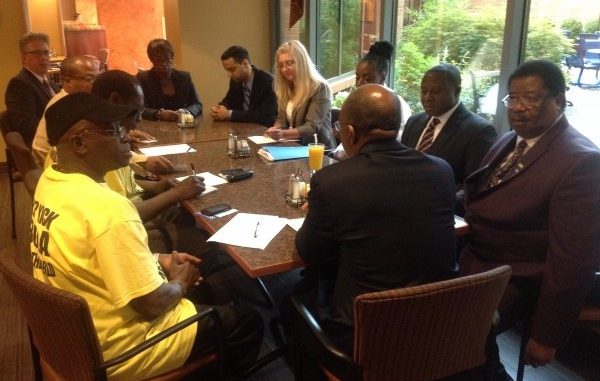
full story
THE IMPORTANT EBOLA MEETING AT THE ST PETER’S UNIVERSITY MEDICAL CENTER YESTERDAY
ATTENDEES TAKE A GROUP PHOTOGRAPH AFTER THE MEETING
MINISTER KABS-KANU ( SECOND FROM RIGHT ) POSES WITH CDC AND DOH OFFICIALS
MR. PAVI JALLOH ( SECOND FROM RIGHT ) POSES WITH CDC AND WHO OFFICIALS
Ebola: Sierra Leone UN Minister, New Jerseyans meet with New Jersey Department of Health officials at Saint Peter’s Healthcare System in New Brunswick
Representatives of the New Jersey Department of Health (NJDOH) and New Brunswick, NJ based Saint Peters Healthcare System held a crucial meeting with some concerned Sierra Leoneans and Liberians during which they assured West African citizens that they will help their countries overcome the Ebola outbreak through awareness campaigns. The meeting was requested by Dr. M. Carolyn Daniels, Executive Director, Office of Minority & Multicultural Health of the New Jersey Department of Health (NJDOH) and hosted by Saint Peter’s Healthcare System under the auspices of the Executive Director, Community Outreach and Diversity Initiatives, Tabiri M. Chukunta, D. Min.
During the meeting, Sierra Leone’s Minister Plenipotentiary to the UN, Mr. Leeroy Wilfred Kabs-Kanu, gave details of the steps that the Government of Sierra Leone had undertaken to combat the Ebola outbreak, including the setting up of the Emergency Operations Committee (EOC), the declaration of a state of health emergency, the quarantining of communities, purchase of 20 ambulances (16 of which had already arrived), mobile biomedic labs and the 3-day lockdown to start on September 19. He made a desperate appeal for medical supplies, including drugs and protective gears, and logistics for healthcare personnel and the burial crew involved in the Ebola fight. “I cannot stress enough the dire need for these supplies”, the Minister said. “We take these materials for granted in the U.S., but these supplies like gloves, goggles, masks, gowns, chlorine, bleach, hand sanitizers and protective gears are the difference between the destruction and survival of our country”.
Messrs Pavi Jalloh, Hadi Gabisi and Shamsu Deen-Cole of Sierra Leone and Mr. Joseph Tolbert of Liberia, re-echoed the appeal.
Mr. Pavi Jalloh said that just last year international institutions listed Sierra Leone as the fastest growing economy on the continent with a 14% growth rate, and “we want to make sure that Ebola does not reverse the gains we have made over the years democratically and economically. Therefore, we need immediate international support to stop the spread of Ebola in the region”.
The New Jersey Department of Health team was headed by Dr. Carolyn Daniels and included Dr. Prathit Kulkarni, MD representing the Centers for Disease Control and Prevention (CDC) and Suzanne Miro, a community health expert for New Jersey.
The discussions centered not only around the provision of medical supplies and logistics direly needed in West Africa to fight Ebola but also what could be done to West Africans in New Jersey to sensitize them, understand how the outbreak affects them and how to protect them, especially given the incidence of relatives and friends coming to visit from the Ebola affected countries.
Dr. Daniels emphasized that the Commissioner of the New Jersey Department of Health was very concerned about people in the community and how the outbreak affects them. She said that she was at the meeting to find out what West Africans needed in terms of awareness campaigns to help mitigate the spread of Ebola.
Dr. Daniels provided a huge stack of sensitization brochures provided by the New Jersey Department of Health for distribution in the community. The brochures are designed to help residents here avoid infection in their back-and-forth travels to West Africa and to help them reach out to people back home with information to stop the transmission and spread of the virus. Mr. Deen-Cole suggested that the brochures be distributed to churches, mosques, entertainment spots and throughout the community. He also called on the NJDOH to identify places and hospitals where medical supplies could be received.
Dr. Prathit Kulkarni stated that he is a physician with the CDC with specialty in the outbreak of diseases. He said that he helps to identify possible cases of Ebola and offers advice to the NJDOH.
The importance of information and sensitization was stressed at the meeting. NJDOH and CDC officials postulated that because of the tremendous influence West Africans have with relatives back home, they could sensitize them effectively. They suggested the use of telephone text messages, among other things, about the dos and donts of Ebola which will play a significant role in stopping the spread of the virus. The extensive discussion covered awareness programs for West Africans residing in New Jersey as relatives and friends visit from the Ebola affected countries.
In his closing remarks, Rev. Chukunta, D.Min., who moderated the meeting, thanked everybody for their input and described all the suggestions as important. He noted that there are things that the NJDOH and CDC can do and things that the community can do for itself and he promised to continue the dialogue.

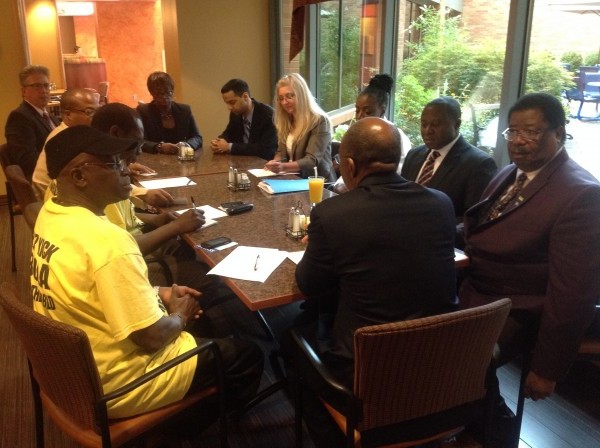
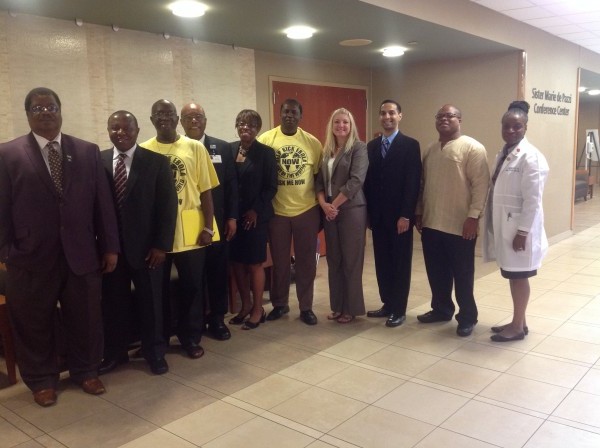
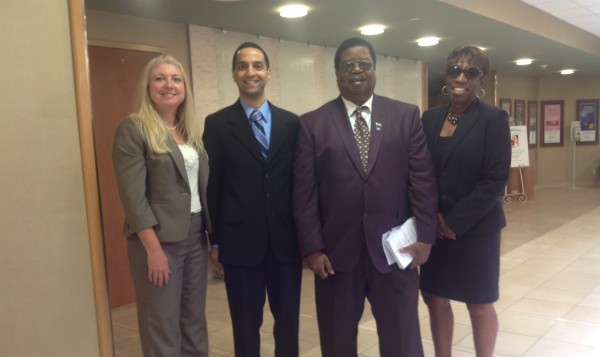
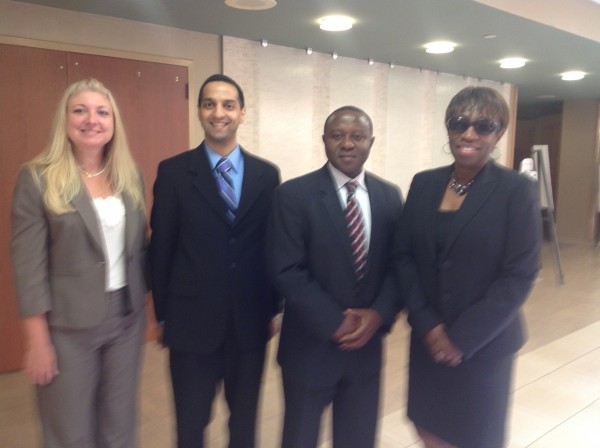

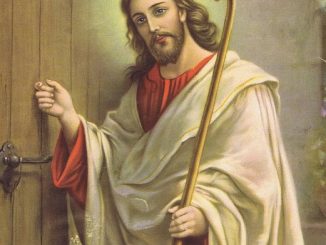

Leave a Reply